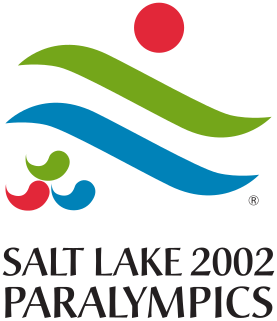
The 1984 Winter Paralympic Games were the third Winter Paralympics. They were held from 14 to 20 January 1984 in Innsbruck, Austria. They were the first Winter Games organized by the International Co-ordinating Committee (ICC), which was formed on March 15, 1982, in Leysin, Switzerland. These Games were accessible for all athletes with cerebral palsy. For the first time, an exhibition event was held at the Olympic Winter Games in Sarajevo and 30 male three-track skiers took part in the Giant Slalom event. Three sports were contested: alpine skiing, cross-country skiing, and ice sledge speed racing. The most successful athlete was German alpine skier Reinhild Moeller, who won 3 gold medals and 1 silver medal. The Games, then known as the Third World Winter Games for the Disabled, were fully sanctioned by the International Olympic Committee (IOC).

The 2006 Winter Paralympic Games, the ninth Winter Paralympics, took place in Turin, Italy from 10 to 19 March 2006. These were the first Winter Paralympic Games to be held in Italy. They were also the first Paralympics to use the new Paralympics logo.

Australia has competed in every Winter Paralympics. In 1976, the first Games, Australia's sole competitor was Ron Finneran, but he was not an official entrant. In 1980, Kyrra Grunnsund and Peter Rickards became the first official competitors, in alpine and cross-country skiing. The number of Australian athletes increased to three, five, five and six at the next four games, respectively, and all of the athletes were alpine skiers. The participation decreased to four in 1998 and climbed back up to six in 2002. Australia won its first Winter Paralympic medals in 1992, and has medalled at every games since then. All of the medals have been won in alpine skiing.
Wheelchair curling at the 2006 Winter Paralympics was played at the Pinerolo Palaghiaccio, in Pinerolo, 30 km southwest of Turin. Wheelchair curling was making its first appearance at the Paralympic Games and took the form of a mixed team event, open to athletes with a physical disability in the lower part of the body that required the everyday use of a wheelchair.

Wheelchair curling is an adaptation of curling for athletes with a disability affecting their lower limbs or gait. Wheelchair curling is governed by the World Curling Federation, and is one of the sports in the Winter Paralympic Games.

Heinz Frei is a Swiss wheelchair athlete. Frei has had a long career of racing, winning the London Marathon wheelchair race three times, and earning five medals at the 2003 European games at the age of 45. He has earned 15 gold medals at the summer and winter Paralympics and is a current world record holder in the half-marathon and marathon wheelchair races. He competed in athletics at every Summer Paralympic Games from 1984 to 2008, and at the 2008, 2012 and 2016 summer games he also participated in cycling, using a handcycle. At the Winter Paralympics, he competed in cross-country sit-skiing between 1984 and 2006 and in the biathlon in 1994.

Switzerland will send a delegation to compete at the 2010 Winter Paralympics in Vancouver, British Columbia, Canada. The country will field a total of fifteen athletes in four of the Games' five sports: alpine skiing, biathlon, cross-country skiing and wheelchair curling. This makes it a slightly smaller delegation than in 2006 or 2002 (18). Switzerland's stated aim is to obtain two medals.

Canada has participated eleven times in the Summer Paralympic Games and in all Winter Paralympic Games. They first competed at the Summer Games in 1968 and the Winter Games in 1976.
The 2002 Winter Paralympics medal table is a list of National Paralympic Committees (NPCs) ranked by the number of gold medals won by their athletes during the 2002 Winter Paralympics, held in Salt Lake City, Utah, United States, from March 7 to March 16, 2002.

The United States (USA) has participated in every Summer and Winter Paralympic Games. The United States is first on the all-time Paralympic Games medal table.

Finland participated in the inaugural Paralympic Games in 1960 in Rome, with a single representative, swimmer Tauno Valkama - who won gold in his sole event, the 50m crawl. The country was absent from the 1964 Games, but returned in 1968, and has participated in every subsequent edition of the Summer Paralympics. Finland has also taken part in every edition of the Winter Paralympics, from the first in 1976.

Norway has participated in every edition of both the Summer and Winter Paralympics, except the second Summer Games in 1964. It was one of the seventeen countries to take part in the inaugural Paralympic Games in 1960 in Rome, where it sent a delegation of eleven athletes. Norway was the host country of both the 1980 Winter Paralympics, in Geilo, and the 1994 Winter Paralympics, in Lillehammer.

Portugal made its Paralympic Games début at the 1972 Summer Paralympics, where it was represented solely by a men's team in wheelchair basketball. They were eliminated at the preliminary stage of the competition, with one victory and three defeats. Portugal was then absent from the Paralympic Games until the 1984 Summer Games, where its athletes won the country's first fourteen medals, including three gold in track and field and one in boccia. Portugal has competed at every subsequent edition of the Summer Paralympics, but -almost uniquely among Western European countries- has never taken part in the Winter Games.

Ukraine made its Paralympic Games début at the 1996 Summer Paralympics in Atlanta, with thirty athletes competing in archery, track and field, powerlifting, swimming, and sitting volleyball. Vasyl Lishchynskyy won Ukraine's first Paralympic gold medal, in the shot put, and Ukrainians also won four silver medals and two bronze. Ukrainians had previously participated within the Soviet Union's delegation in 1988, and as part of the Unified Team in 1992. Ukraine, following its independence from the Soviet Union, missed out on the 1994 Winter Games, but made its Winter Paralympics début at the 1998 Winter Games in Nagano. Ukraine has competed at every edition of the Summer and Winter Games since then and have done so with remarkable success.
Marianna "Muffy" Davis is an American Paralympic cyclist, sit-skier and mountain climber.

Switzerland competed at the 1998 Winter Paralympics in Nagano, Japan. 19 competitors from Switzerland won 23 medals including 10 gold, 5 silver and 8 bronze and finished 6th in the medal table.

Switzerland competed at the 1994 Winter Paralympics in Lillehammer, Norway. 19 competitors from Switzerland won 16 medals including 2 gold, 9 silver and 5 bronze and finished 11th in the medal table.

Switzerland competed at the 1992 Winter Paralympics in Tignes/Albertville, France. 19 competitors from Switzerland won 15 medals including 3 gold, 8 silver and 4 bronze and finished 8th in the medal table.















